Sealife guideThe king penguinAptenodytes patagonicus
Last updated on 08/23/2024 at 11:53 PM
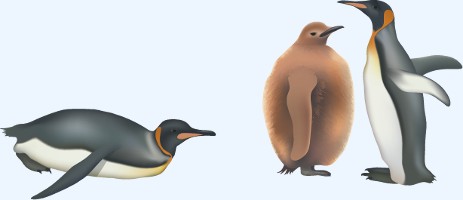
The king penguin (Aptenodytes patagonicus)
Taxonomy
- Common name: King penguin
- French name: Manchot royal
- Scientific name: Aptenodytes patagonicus (Miller, 1778)
- Family name: Spheniscidae
- Order name: Sphenisciformes
- Class name: The sea birds
Description
The king penguin has a blue-black body with a white belly and very light orange markings on its head. The king penguin stands about 33 to 37 inches tall and weighs between 26 to 31 pounds.
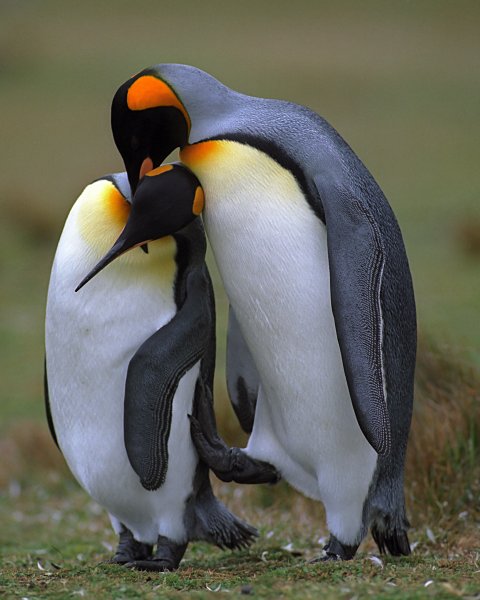
The king penguin looks just like the emperor penguin !
It's difficult to distinguish females from males, as there is no notable difference in their appearance.
Geographic range
The king penguin is found in the Antarctic Ocean along the rocky coasts of the Kerguelen islands and Crozet islands, in the southern Atlantic Ocean on the Falkland islands, South Georgia and South Sandwich Islands, or in the Indian Ocean on Heard island and the McDonald islands.
Habitat
The king penguin lives on the rocky coasts of the southern Atlantic Ocean and the Antarctic Ocean. Unlike other penguin species, the king penguin does not build a nest.
Diet
It feeds on squid and fish which it hunts to depths of around 656 feet.
Reproduction
Around November, the king penguin lays its egg on its feet, which is covered by a flap of skin to protect it from the cold. The egg is incubated by both parents alternately for 55 days, hatching into a chick that will remain nestled on its parents' feet for some time. The chick stays with its parents for about 11 months, after which it is mature enough to fend for itself.
Did you know ?
The king penguin is threatened by climate change, which affects its foraging area.
The king penguin is the second-largest penguin species in the world, after the emperor penguin.
The king penguin closely resembles the emperor penguin but it is distinguished by its smaller size.
The king penguin is listed as many other marine species within The IUCN Red List of threatened species. The king penguin appears in the IUCN Red List since 2020 within the category Least Concern !
Within the same genus
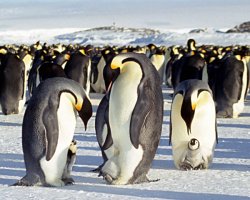
Emperor penguin
(Aptenodytes forsteri)
(Aptenodytes forsteri)
Within the same family
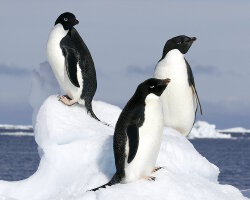
Adelie penguin
(Pygoscelis adeliae)
(Pygoscelis adeliae)
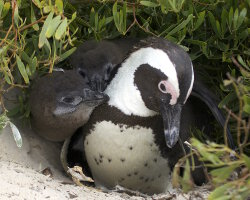
African penguin
(Spheniscus demersus)
(Spheniscus demersus)
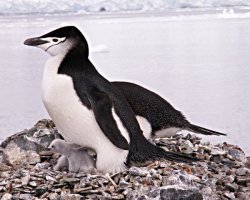
Chinstrap penguin
(Pygoscelis antarcticus)
(Pygoscelis antarcticus)
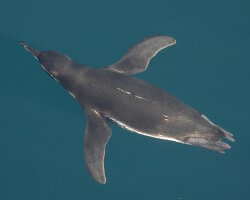
Galapagos penguin
(Spheniscus mendiculus)
(Spheniscus mendiculus)
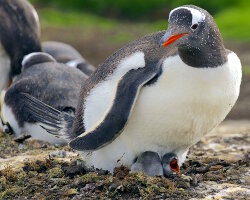
Gentoo penguin
(Pygoscelis papua)
(Pygoscelis papua)
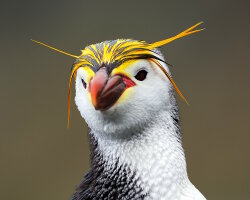
Royal Penguin
(Eudyptes schlegeli)
(Eudyptes schlegeli)
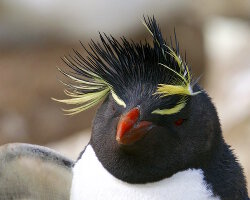
Southern rockhopper penguin
(Eudyptes chrysocome)
(Eudyptes chrysocome)
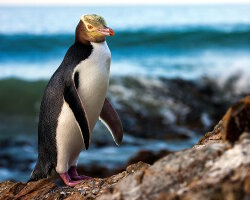
Yellow-eyed penguin
(Megadyptes antipodes)
(Megadyptes antipodes)
Discover also
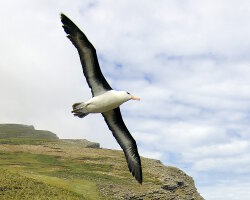
Black-browed albatross
(Thalassarche melanophris)
(Thalassarche melanophris)
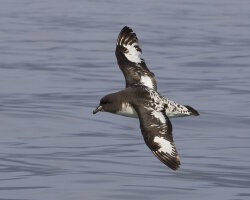
Cape petrel
(Daption capense)
(Daption capense)
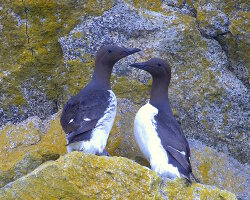
Common murre
(Uria aalge)
(Uria aalge)
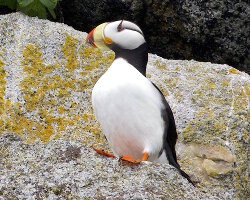
Horned puffin
(Fratercula corniculata)
(Fratercula corniculata)
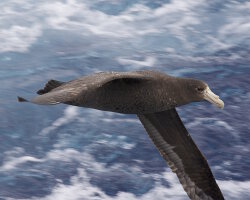
Northern giant petrel
(Macronectes halli)
(Macronectes halli)
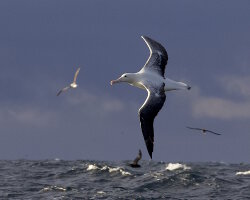
Northern Royal Albatross
(Diomedea sanfordi)
(Diomedea sanfordi)
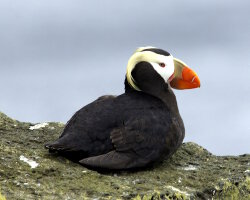
Tufted puffin
(Fratercula cirrhata)
(Fratercula cirrhata)
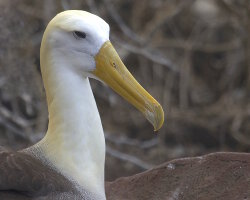
Waved albatross
(Phoebastria irrorata)
(Phoebastria irrorata)
Our latestUpdates
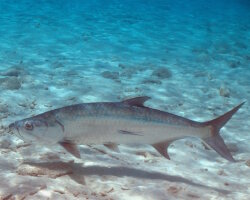
Wednesday, February 18th 2026
The Atlantic tarpon
The Atlantic tarpon is a large coastal fish that can grow up to 8 feet long and weigh over 330 pounds, with a silvery body covered in large, reflective scales. Known as the Silver King, it is famous for its spectacular leaps and fierce fight when hooked by sport fishermen.
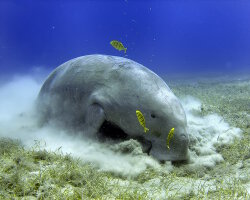
Friday, January 30th 2026
The dugong
Discover the dugong, a gentle “sea cow” of tropical waters. Learn about its habitat, diet, reproduction, morphology, and the threats facing this unique marine mammal.
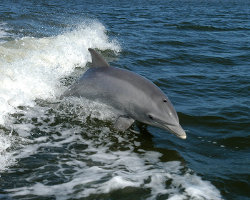
Friday, January 23rd 2026
Dolphins: ocean's smartest creatures
Discover dolphins, the ocean's geniuses: explore their intelligence, social behavior, sophisticated communication, species diversity and vital role in marine ecosystems.
Photo of the Day
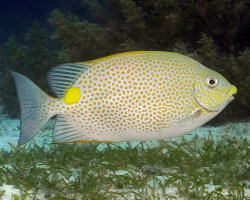
Poisson lapin tacheté d'or
(Siganus guttatus)
(Siganus guttatus)
